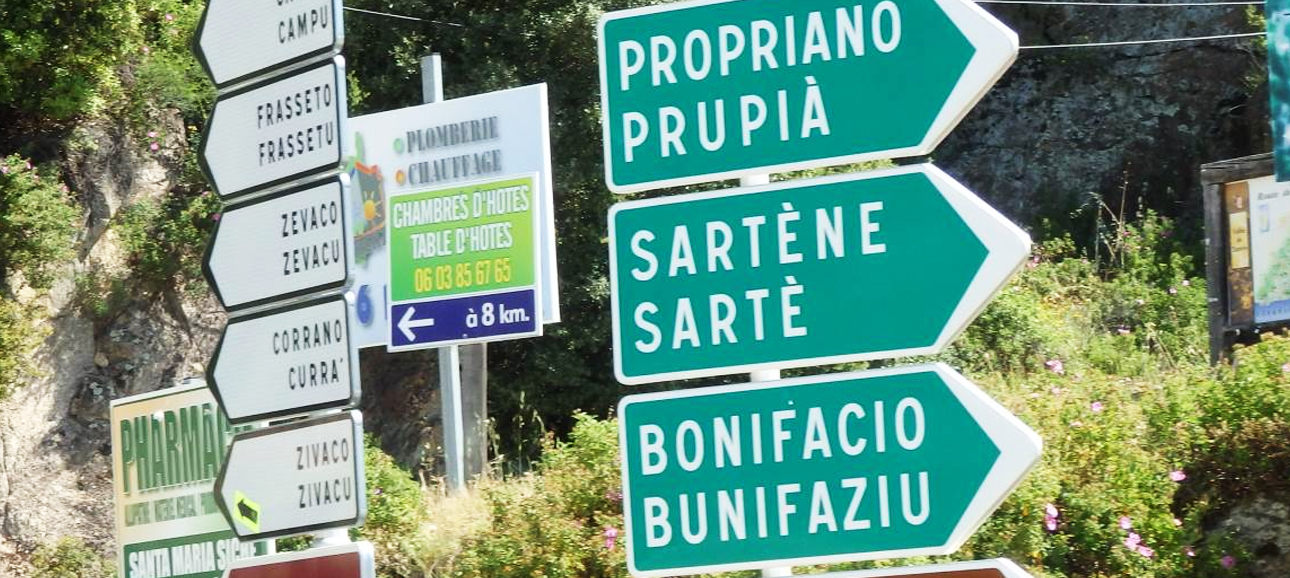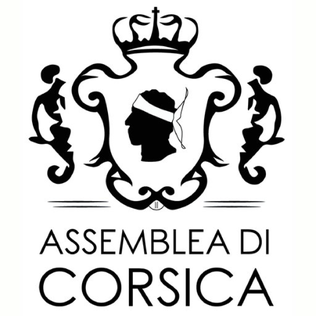 The Corsican Language
The Corsican Language

Corsica’s official language is French, as it is administered by France although the majority speaks in Corsu.
The Corsican language was an oral only language as per tradition but over the years, it has been taught well as well as researched thoroughly by songwriters and authors who have utilized the language in their works.
So, as a matter of fact, you will find a number of written material in Corsican language or langue corse (in French) now in hard copy as well as soft copy on the internet.
Corsica’s official language is French, as it is administered by France although the majority speaks in Corsu.
Corsu is not legally recognized but is taught extensively in schools where kids have this optional subject and in Corte University.
In course of time, Corsu will be ratified by the French government to the minority language charter of Europe, so is the idea because most inhabitants identify themselves as Corsican than French, thereby, feel the need of teaching Corsican to their kids.
Corsican Language – Its Development

In course of time, Corsu will be ratified by the French government to the minority language charter of Europe.
There is a misconception that Corsu is a French dialect but originally it originates from Tuscany influenced Latin or is part of the Indo-European Romance Languages. Being an orally transmitted language, Corsu was introduced to written form by the late C19.
From village to village within the southern, southern and central Corsica, the language has significant variation in terms of pronunciation, spelling, words and syntax. To any untutored ear, Corsu might seem like Italian. The language differs so much from the northern valleys to that of southern region that language will be different for a person living in Sartene and that in Tavagna!
There are basically 3 main Corsu variants namely Lingua suttana, Lingua mizana and Lingua suprana. With the variants, there has been constant resistance of “academisation” of Corsu.

Thanks to Corsican Assembly for starting the campaign with Economic and Social Council to create dual road signage.
Being bilingual (Corsu and French) is a plus point for Corsicans as it helps them to increase intellectual agility and learn different language from the Latin-speaking regions especially. Once the arrival of Romans and mingling with them for around 7 centuries have resulted in the introduction and development of Latin through speech as there was no cultural or economic centers in Corsica at that time.
Latin was further mingled with Corsu with the help of Christian evangelists. Among the many Latin words surviving in Corsu, Cow –Uberem and Goat –Mantacu are quite common. In this context it is to be mentioned that many inhabitants speak in French interspersed Corsican while some invent new Corsican words to avoid French-accent.
Without any official status, minimal legal and administrative usage of Corsu is seen and general public speak in this language in case of dealings in courts and administrative works, though not in official capacity.
Thanks to Corsican Assembly for starting the campaign with Economic and Social Council to create dual road signage i.e. in French and Corsican symbols. If you attend any polyphony concert or go for hunting, you will find many people speaking Corsu. Know more about Corsican traditional music.
 The Corsican Language
The Corsican Language